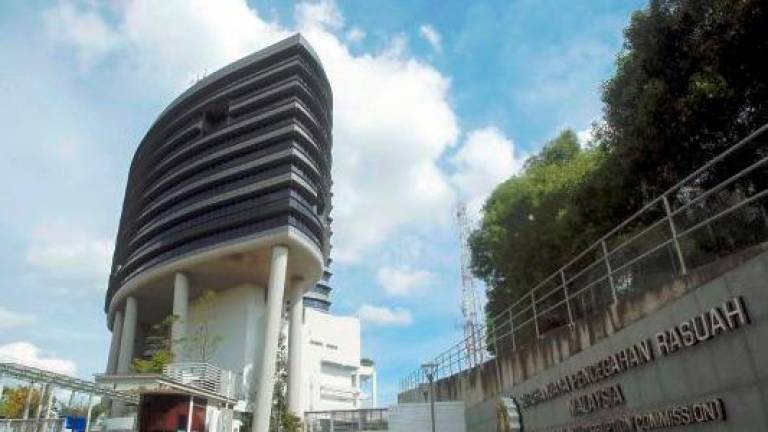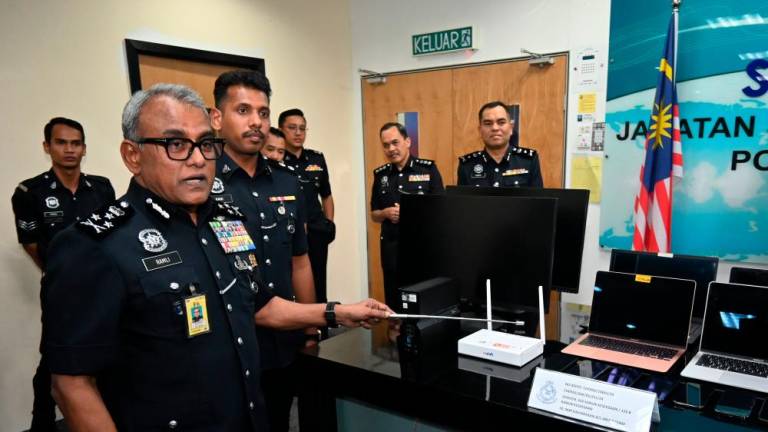FOLLOWING the court verdict on the corruption case of former prime minister Datuk Seri Najib Abdul Razak, commentators have focused on the implications of this development. Assessments have also appeared on how big a breakthrough this is for Malaysia’s politics and political life.
Some of the most optimistic opinions which have appeared in the foreign media have hailed the court’s guilty decision on Najib as “historic” while others have termed the outcome as “unprecedented”, “an auspicious day for Malaysians” or referred to it as “the people’s victory”.
According to Datuk Seri Anwar Ibrahim, the Opposition leader in Parliament, the ruling on Najib was a “momentous occasion for democracy and the rule of law”. He pointed out that the criminal case was filed after Najib was voted out and a new Pakatan Harapan government took over, thus indirectly claiming credit for the current Opposition.
Amid the general euphoria, there has also been caution in any premature celebration that a new dawn may be appearing in Malaysian politics.
Rival petitions
In fact, Najib’s grip on Umno’s grassroots membership as well as the Malay community and political constituency does not appear to have diminished. It may have been strengthened by the guilty verdict, judging from the response on Malay social media, which could have ripple effects on the 15th General Election.
A year earlier, when Najib was found guilty of all seven charges of abuse of power, criminal breach of trust and money laundering in relation to RM42 million belonging to SRC International Sdn Bhd by High Court Judge Datuk Mohd Nazlan Mohd Ghazali, a blogger, Malaysian Maverick blogger @maverick_97 pointed out: “What you will never understand is Umno’s penetration into the Malay Heartland. Their loyalty is not bought by money, it is bought by instilling the belief that only Umno can take care of you.”
The coming election will again see the Malay electorate play a key role in determining the political future of Malaysia.
An electoral outcome in which Umno, the dominant party, and its coalition partners secure victory may well see Najib receive a pardon freeing him from prison. It may also see Najib’s return to active politics as the country’s most influential and popular political leader.
One indicator of how the wind is blowing on the Malay response to Najib’s conviction is the lukewarm response to the Bersih-initiated petition to the Yang di-Pertuan Agong Al-Sultan Abdullah Ri’ayatuddin Al-Mustafa Billah Shah.
Noting that some parties are already thinking of applying for a royal pardon, the online petition appealed to the Agong to deny any appeal for pardon.
At the time of writing, there were 120,212 signatories for this petition.
Umno’s counter petition
Meanwhile, Umno members have been asked for their full support behind a counter petition seeking a royal pardon for Najib.
According to Perak Umno chairman Datuk Seri Saarani Mohamad, the instruction, which came from party president Datuk Seri Dr Ahmad Zahid Hamidi, was not unusual.
Whatever the outcome of these two petitions or the coming election, Malaysians can for now take consolation that the court findings are one small but important step forward in our progress towards a nation that observes the rule of law and has a judiciary that is truly independent from any outside influence – for now from the political sphere, but hopefully also relating to the economic, sociocultural and religious spheres.
For this, we should thank Chief Justice Tun Tengku Maimun Tuan Mat and her panel of Federal Court judges – Tan Sri Datuk Abang Iskandar Abang Hashim, Datuk Nallini Pathmanathan, Datuk Mary Lim Thiam Suan and Datuk Muhamad Zabidin Mohd Diah – as well as Mohd Nazlan and the other judges involved in the earlier court hearings on Najib’s case.
Largely forgotten in the outpouring of tributes is the equally key role played by the prosecution’s team, led by Datuk V. Sithambaram, that painstakingly put together the serpentine and convoluted case of corruption, money laundering and bribery. The prosecution members may have been subject to even greater pressure than the judges involved in the highest profile corruption case in the nation’s history.
All of them deserve recognition and accolades for refusing to give in to the threats and pressure exerted on them by the courts and other clusters.
One final caveat – the current crop of politically-assisted corruption cases represent only the tip of the iceberg of high level corrupt practices, which goes back at least 50 years and has cost the nation hundreds of thousands, if not billions of ringgit.
All members of the judiciary, as well as the lawyers in Malaysia’s legal service, need to work harder to prove that the nation’s judiciary has finally stood firm on the rule of law, is reasserting its lost independence and perhaps, most important of all, has begun the long journey to redefine once again the critical separation needed between the Executive, Legislative and Judiciary.
Lim Teck Ghee’s Another Take is aimed at demystifying social orthodoxy.
Comments: letters@thesundaily.com













